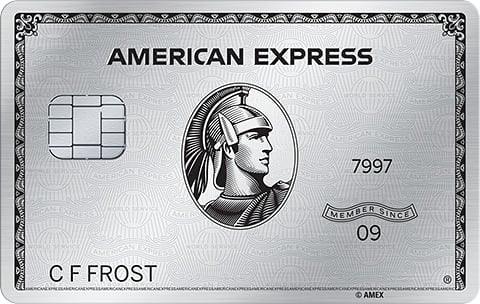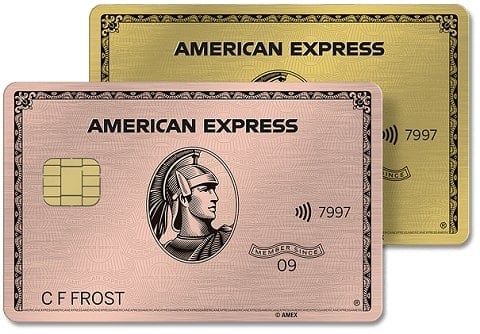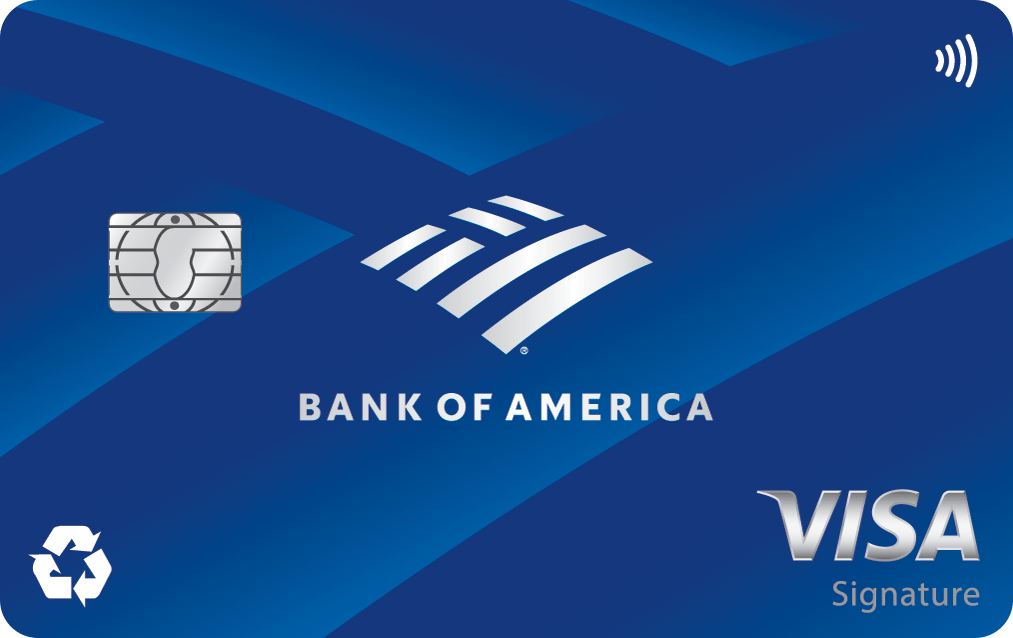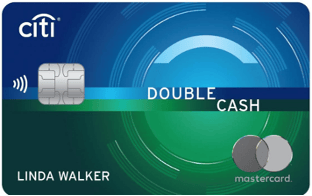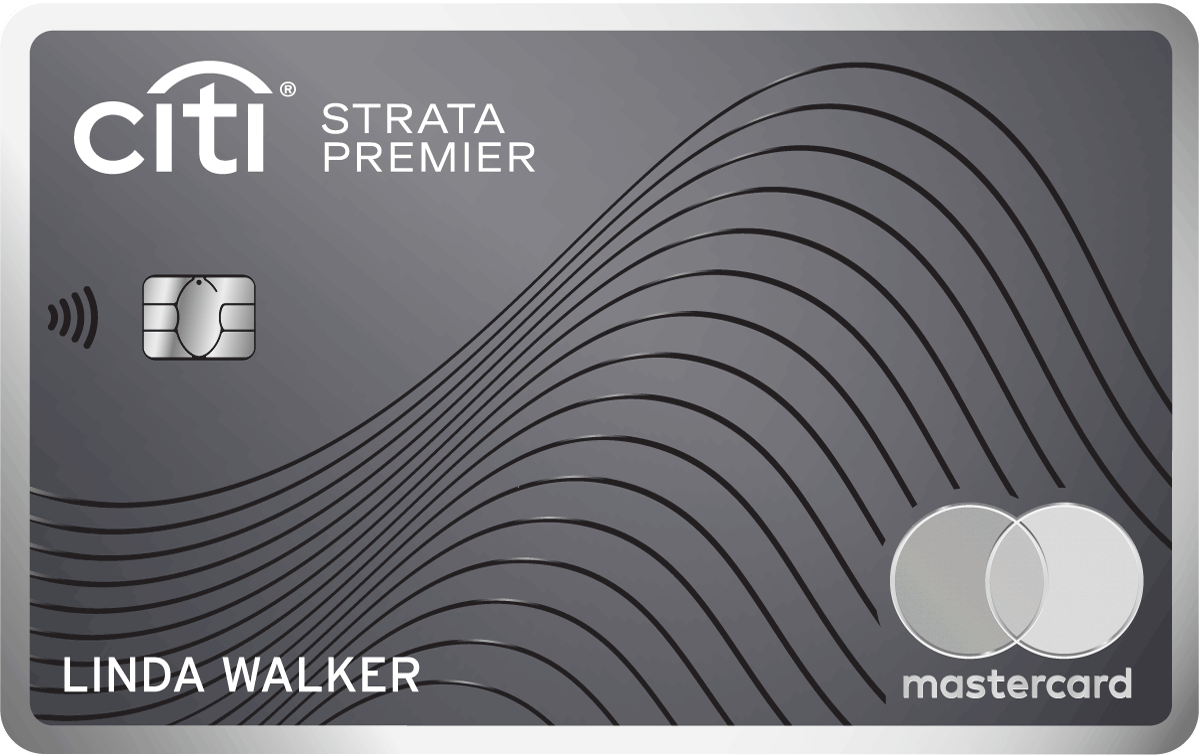Best Credit Cards for Wedding Expenses
The most magical day of your life can also be the most expensive. Take some of the sting out with the right card.

Many or all of the products on this page are from partners who compensate us when you click to or take an action on their website, but this does not influence our evaluations or ratings. Our opinions are our own.
You’re getting married — congratulations! Now it’s time to figure out how to pay for it.
The cost of a wedding may be intimidating, but you can lessen the impact on your wallet by maximizing credit card rewards and perks. The average cost of a wedding was $33,900 in 2019, according to an annual survey by The Knot. On that amount, a credit card's incentives could earn you several hundred dollars toward your honeymoon or a purchase. Or you could finance a much-needed wedding expense — even an engagement ring — with a credit card and get interest-free breathing room while catching up on payments.
The right credit card for your wedding should be as compatible with your expenses as your partner is with you. Here’s how to find the one.
American Express Platinum Card®
Our pick for: Luxurious honeymoon perks
Card details
Rewards:
- 5 Membership Rewards points per dollar spent on flights booked directly with airlines or with American Express Travel (on up to $500,000 in spending per calendar year).
- 5 points per dollar on prepaid hotels booked through American Express.
- 2 points per dollar on other eligible travel expenses booked through American Express.
- 1 point per dollar on all other purchases.
- Terms apply.
Welcome offer: You may be eligible for as high as 175,000 Membership Rewards® Points after spending $12,000 in eligible purchases on your new Card in your first 6 months of Membership. Welcome offers vary and you may not be eligible for an offer. Terms apply.
Annual fee: $895. Terms apply.
APR: See Pay Over Time APR (see rates and fees). Terms apply.
Why we like it:
The American Express Platinum Card® can enhance the travel experience for big spenders. The card’s steep $895 annual fee won’t be easy to keep up with if you don't already live a high-end lifestyle. Assuming you travel enough, though, the card’s long list of perks can make up the cost. It offers a $600 hotel credit, a $200 credit for airline incidental fees like checked bag fees and in-flight beverages*, a $200 annual credit for Uber ($15 each month and $35 in December), $100 a year at Saks Fifth Avenue, airport lounge access and a fee credit for either Global Entry or TSA Precheck, among other perks. You can also use the card to get hotel benefits like Marriott Gold Elite status or Hilton Gold status that earn you additional goodies like room upgrades. Enrollment is required to take advantage of these benefits. Terms apply.
Chase Sapphire Preferred® Card
Our pick for: Honeymoon costs
Card details
Rewards:
- 5 points per $1 spent on all travel booked through Chase.
- 3 points per $1 spent on dining (including eligible delivery services and takeout).
- 3 points per $1 spent on select streaming services.
- 3 points per $1 spent on online grocery purchases (not including Target, Walmart and wholesale clubs).
- 2 points per $1 spent on travel not booked through Chase.
- 1 point per $1 spent on other purchases.
Welcome bonus: Earn 75,000 bonus points after you spend $5,000 on purchases in the first 3 months from account opening.
Annual fee: $95.
APR: The ongoing APR is 19.24%-27.49% Variable APR.
Why we like it:
To get you started, the Chase Sapphire Preferred® Card comes with a sign-up bonus you could earn just with your wedding expenses. You also have the option of transferring your points to a participating frequent traveler program at a 1:1 ratio. Chase's partners include United, Southwest, British Airways, Air France/KLM, Hyatt and Marriott, among several others. If you’re savvy at travel hacking, you could score a couple of award tickets to your honeymoon destination for free. This, of course, would really help bring down the overall cost of your trip. And if you’re thinking of an overseas honeymoon, the Chase Sapphire Preferred® Card charges no foreign transaction fees.
American Express® Gold Card
Our pick for: Everyday spending and travel
Card details
Rewards:
- 4 Membership Rewards points per dollar spent at restaurants on up to $50,000 in purchases per year, including those made through third-party processors like Square and Toast.
- 4 points per dollar spent at U.S. supermarkets on up to $25,000 in purchases per year.
- 3 points per dollar spent for flights booked directly with airlines or with American Express Travel.
- 1 point per dollar spent on other eligible purchases.
- Terms apply.
Welcome offer: You may be eligible for as high as 100,000 Membership Rewards® Points after you spend $6,000 in eligible purchases on your new Card in your first 6 months of Card Membership. Welcome offers vary and you may not be eligible for an offer. Apply to know if you’re approved and find out your exact welcome offer amount – all with no credit score impact. If you’re approved and choose to accept the Card, your score may be impacted.
Annual fee: $325. Terms apply.
APR: See Pay Over Time APR. (see rates and fees) Terms apply.
Why we like it:
The American Express® Gold Card is an excellent card before and after the wedding. You can use its $120 annual dining credit for a nice night out while on your honeymoon, or to stress eat in the middle of chaotic wedding preparations — your choice! It’s distributed in $10 monthly credits to your account and can be applied toward purchases with select partners including Grubhub, The Cheesecake Factory, Goldbelly, Wine.com and Five Guys (enrollment required). If you add your American Express® Gold Card card to the Uber app, you’ll also get up to $120 a year in Uber Cash (distributed as $10 each month) to be used on US Uber Eats and rides. (Effective 11/8/2024, an Amex Card must be selected as the payment method for your Uber or Uber Eats transaction to redeem the Amex Uber Cash benefit.)
The introductory offer also goes a long way toward travel and may cover some honeymoon costs. The generous rate at U.S. supermarkets also makes it an excellent card to keep in your wallet long after you say "I do." Terms apply.
Bank of America® Travel Rewards credit card
Our pick for: No-annual-fee travel rewards and a 0% intro APR
Card details
Rewards:
- 1.5 points per dollar spent.
- 3 points per dollar spent on eligible travel booked through the Bank of America® Travel Center.
Welcome bonus: 25,000 online bonus points after you make at least $1,000 in purchases in the first 90 days of account opening - that can be a $250 statement credit toward travel purchases.
Annual fee: $0.
APR: 0% Intro APR for 15 billing cycles for purchases, and for any balance transfers made in the first 60 days. After the Intro APR offer ends, a Variable APR that’s currently 17.49%-27.49% will apply.
Why we like it:
With the Bank of America® Travel Rewards credit card, you get decent rewards and a 0% intro APR period. The combination is a rarity among travel credit cards. Plus, the card has one of the broadest definitions of travel compared with other issuers. You can use points to get statement credit for airfare, hotel stays, cruises, car rentals, art galleries, amusement parks, carnivals, circuses, zoos and restaurants. It’s also a good card to take abroad on your honeymoon since it doesn’t charge foreign transaction fees. As a Visa, it has broader merchant acceptance internationally as well.
U.S. Bank Shield™ Visa® Card
Our pick for: A long 0% introductory APR period
Card details
Rewards: 4% cash back on prepaid air, hotel and car reservations booked directly in U.S. Bank’s Rewards Center.
Welcome bonus: None.
Annual fee: $0.
APR: 0% intro APR for 18 billing cycles on purchases and balance transfers, and then the ongoing APR of 16.99%-27.99% Variable APR.
Why we like it:
If you want or need extra time to pay off your wedding expenses, take a good look at the U.S. Bank Shield™ Visa® Card. It boasts a 0% intro APR period of nearly two years. That will help you pay off those big purchases — like a ballgown or the perfect reception venue — interest-free.
Note: This intro APR is shorter than the current offer through U.S. Bank's website, but that offer comes with a higher balance transfer fee.
🤓 Nerdy Tip
Pay off your credit card balance in full before the 0% introductory APR expires to avoid owing interest. If your wedding is too expensive to do this, we encourage you to reevaluate your budget. This should be a happy occasion, not one that causes you stress due to lingering debt. Citi Double Cash® Card
Our pick for: General wedding expenses
Card details
Rewards: Earn 2% cash back: 1% cash back on every purchase and another 1% back when you pay the bill.
Welcome bonus: Earn $200 cash back after you spend $1,500 on purchases in the first 6 months of account opening. This bonus offer will be fulfilled as 20,000 ThankYou® Points, which can be redeemed for $200 cash back.
Annual fee: $0.
APR: 0% intro APR on balance transfers for 18 months, and then the ongoing APR of 17.49%-27.49% Variable APR.
Why we like it:
If you're going to be shelling out thousands of dollars, you might as well rack up rewards in the process. Enter the Citi Double Cash® Card, the cash-back card that rewards you for paying off your balance. A rewards rate of up to 2% cash back on all purchases is a solid deal when you’re making payments in categories that don’t typically earn elevated rewards, like paying the band or DJ or buying flowers. You can use your rewards to whittle away at the cost of your big day even as you spend for it.
Discover it® Miles
Our pick for: Easy redemptions and a 0% intro APR
Card details
Rewards: 1.5 miles per dollar spent.
Welcome bonus: UNLIMITED BONUS: Unlimited Mile-for-Mile match for all new cardmembers. Discover gives you an unlimited match of all the Miles you’ve earned at the end of your first year. There’s no signing up, no minimum spending or maximum rewards. Just a Miles-for-Miles match. You could turn 35,000 Miles into 70,000 Miles.
Annual fee: $0.
APR: 0% intro APR for 15 months on purchases and balance transfers, and then the ongoing APR of 17.49%-26.49% Variable APR.
Why we like it:
You have a lot of things to worry about while juggling wedding plans. Fortunately, the Discover it® Miles is as straightforward as it gets. Unlike other travel credit cards, this card doesn't lose any value when you redeem for non-travel options. All options, like cash back or statement credit, redeem for the same rate. Plus, you can use the lengthy 0% intro APR offer to finance any wedding-related purchases. Discover’s miles-for-miles match can also be potentially lucrative, assuming you pay for most wedding expenses with the card.
Citi Strata Premier® Card
Our pick for: Anniversary getaways
Card details
Rewards:
- 10 ThankYou points per $1 spent on hotels, car rentals and attractions booked through Citi.
- 3 points per $1 spent on air travel and other hotels.
- 3 points per $1 spent at supermarkets.
- 3 points per $1 spent at gas stations.
- 3 points per $1 spent at restaurants.
- 1 point per $1 spent on all other purchases.
Welcome bonus: Earn 60,000 bonus ThankYou® Points after spending $4,000 in the first 3 months of account opening, redeemable for $600 in gift cards or travel rewards at thankyou.com.
Annual fee: $95.
APR: The ongoing APR is 19.49%-27.49% Variable APR.
Why we like it:
The Citi Strata Premier® Card earns a healthy rewards rate on everyday spending and travel, so it’s easier to rack up rewards toward your next getaway. It also offers a hotel benefit that gets you $100 off of a single hotel stay of at least $500 (not including taxes and fees) once every calendar year when you book through Citi. The hotel benefit can offset the $95 annual fee, but, again, you'd have to spend the $500 to get it. You may fare better with more flexible travel credits on other credit cards, but they're likely to have higher annual fees.
*More from American Express
American Express relies on airlines to submit the correct information on airline transactions to identify incidental fee purchases. If you do not see a credit for a qualifying incidental purchase on your eligible Card after 8 weeks, simply call the number on the back of your Card. Qualifying airlines are subject to change. See terms & conditions for more details
To view rates and fees of the American Express Platinum Card®, see this page.
To view rates and fees of the American Express® Gold Card, see this page.
Article sources
NerdWallet writers are subject matter authorities who use primary,
trustworthy sources to inform their work, including peer-reviewed
studies, government websites, academic research and interviews with
industry experts. All content is fact-checked for accuracy, timeliness
and relevance. You can learn more about NerdWallet's high
standards for journalism by reading our
editorial guidelines.
Find the right credit card for you.
Whether you want to pay less interest or earn more rewards, the right card's out there. Just answer a few questions and we'll narrow the search for you.
Related articles



